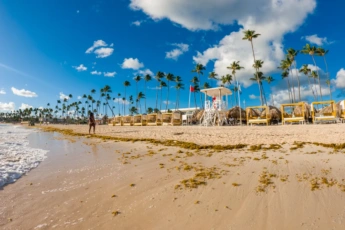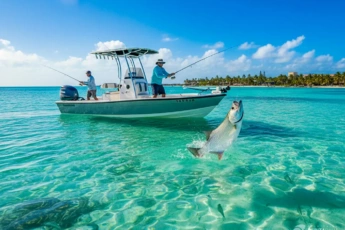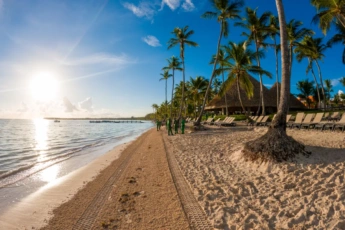Dominican Last News – Safety, Customs, Tips and Travel FAQs for Visitors
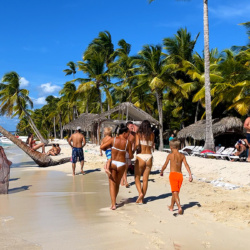
Punta Cana Travel Restrictions Lifted! – Current Situation in the Dominican Republic 2026
Nowadays, due to quarantine restrictions, the tourism sector is suffering. The Caribbean is no exception. And the fact that 2021 was the best year economically for the Dominican Republic is unbelievable. Moreover, December of the same year was the…
Read more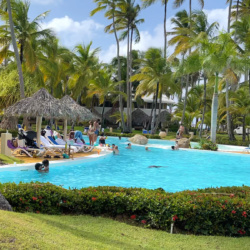
Dominican Republic Curfew End Date – What is the current situation in the DR in August 2021?
Well, we have all been waiting for this for so long, and finally, it happened. Our team is incredibly pleased to inform you that August 9, 2021, - it is the official curfew end date, and from this date…
Read more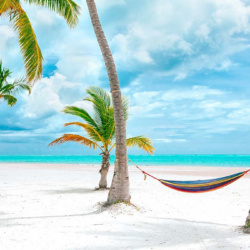
How Long Can I Stay in the Dominican Republic in 2026?
Planning your Dominican Republic vacation is definitely one of the most pleasant things. You choose the period of your stay in the country, pack your bags. When you arrive at your destination, you enjoy being here, and you want…
Read more
E-ticket Dominican Republic – New Electronic Ticket for Travelers to the DR
What do tourists need to travel to the Dominican Republic? Most tourists, including citizens of the United States, Canada, most of the countries of Central and South America, and the European Union, only need a valid passport to enter…
Read more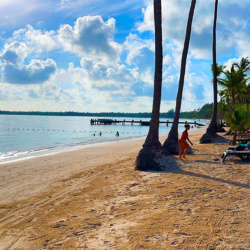
The Dominican Republic Reopening – Covid-19 Restrictions 2021
Excellent recent news! Our team is incredibly pleased to inform you that from August 9, 2021 there will be no more curfew for some main tourist areas of the Dominican Republic! You can find more relevant and detailed information…
Read more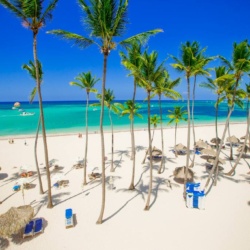
Curfew hours in Punta Cana – The Dominican Republic
Excellent recent news! Our team is incredibly pleased to inform you that from August 9, 2021 there will be no more curfew for some main tourist areas of the Dominican Republic! You can find more relevant and detailed information…
Read more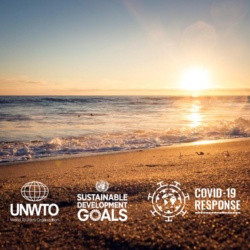
The Dominican Republic New Curfew Restrictions on Christmas and New Year 2021
The Vice President of the Dominican Republic, Raquel Peña, announced new DR curfew restrictions for the Christmas and New Year celebrations due to the increase in COVID-19 cases. The Government does everything to preserve the health and lives of…
Read more
Pool Tropic Las Iguanas – the new concept of Cap Cana resorts 2026
Needless to say that there is a wide range of luxury resorts at Cap Cana, the most developed residential area in the east of the Dominican Republic. What are the pros of choosing this particular area for your best…
Read more
Vasiliy Smetanin – Exclusive representative of Giggster in the Dominican Republic!
A professional speaker and trainer for corporations, Barbara Rubel, said that some people dream of success, while others wake up and work at it. These words could be the credo of Vasiliy Smetanin, who is the founder and CEO…
Read more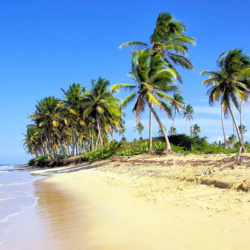
Will the Dominican beaches be open during the curfew in 2020?
Actual information about beach access in the DR as of October 2020 Luckily for tourists, who despite the prolonged Dominican curfew and emergency situation on the national level come again to the Caribbean paradise, the Dominican government kept its…
Read moreFrequently asked questions about
the Dominican Republic news
1. What are the current issues in the Dominican Republic?
The Dominican Republic is a popular travel destination, but like any country, it faces its share of issues. Current challenges include:
- The tourism sector has rebounded since the lifting of travel restrictions and the curfew, but the country is still addressing economic impacts. Efforts to boost tourism have included implementing the E-ticket system, streamlining traveler entry, and promoting new resort concepts like Pool Tropic Las Iguanas in Cap Cana.
- Waste management and deforestation remain significant concerns. Beach clean-up initiatives and eco-friendly developments are increasing to combat these challenges. For example, resorts in Punta Cana now incorporate sustainability practices.
- While main tourist areas like Punta Cana and Santo Domingo are well-developed, rural areas may face challenges like road conditions and unreliable utilities.
- Petty theft and scams targeting tourists can occur in busy areas. However, most resorts and tourist zones have robust security measures.
- Although relatively stable, occasional protests or policy changes may occur. Travelers should stay updated on local news during their visit.
2. What do I need to know before going to the Dominican Republic?
Here are some essential things to keep in mind before traveling to the Dominican Republic:
Important things to know about the Dominican Republic
| Aspect | Details |
|---|---|
| Entry requirements | Visitors need a valid passport and should complete the E-ticket form, an electronic entry and exit document. |
| Currency | The official currency is the Dominican Peso (DOP), but US dollars are widely accepted in tourist areas. |
| Language | Spanish is the official language. While English is commonly spoken in resorts, basic Spanish phrases can be helpful. |
| Health precautions | No mandatory vaccinations, but ensure you’re updated on routine vaccines and consider protection against mosquito-borne illnesses. |
| Transportation | Renting a car is an option but drive cautiously as traffic rules may not be strictly followed. |
| Cultural etiquette | Respect local customs, dress modestly in religious or formal settings, and tip service staff (10% is common). |
| Weather | Expect warm weather year-round, with hurricane season from June to November. Pack lightweight, breathable clothing. |
3. Can I stay longer than 30 days in the Dominican Republic?
Yes, you can stay longer than 30 days in the Dominican Republic. The country offers options for extended stays:
- A tourist card allows a stay of 30 days. If you plan to stay longer, you can extend your visa at the General Directorate of Migration office. Fees vary based on the length of the extension.
- If you overstay without extending your tourist card, you’ll pay a fine upon departure. For example: 31–90 days: approx. $50 USD; 3–9 months: approx. $80 USD; over 1 year: Approx. $100 USD.
- For long-term stays, consider applying for a residency visa. This is ideal for retirees, business owners, or frequent visitors.
4. Can you wear shorts in the Dominican Republic?
Yes, wearing shorts is perfectly acceptable in the Dominican Republic, especially in casual settings. However, there are a few considerations:
- Shorts are commonly worn by both locals and tourists at beaches, resorts, and informal restaurants.
- In urban or rural areas, especially during visits to religious sites or formal settings, it’s better to wear longer pants or skirts to show respect.
- Lightweight shorts made of breathable fabric are ideal for the warm, tropical weather.
5. What is the risk in the Dominican Republic?
While the Dominican Republic is generally safe for tourists, certain risks should be considered:
- Mosquito-borne illnesses. Diseases like dengue fever and chikungunya can occur, especially during the rainy season. Use insect repellent and mosquito nets.
- Food and water safety. Stick to bottled water and eat at reputable establishments to avoid stomach issues.
- Petty theft. Pickpocketing or bag snatching can happen in crowded areas. Keep valuables secure and be cautious in busy tourist zones.
- Scams. Be wary of overly friendly strangers offering unsolicited services or deals.
- Hurricanes. The hurricane season is from June to November. Check weather updates before and during your trip.
- Strong sun. Always wear sunscreen and stay hydrated to prevent sunburn or heat exhaustion.
- Driving in the Dominican Republic can be challenging due to erratic driving habits and poor road conditions in some areas.
By being aware of these risks and taking precautions, you can enjoy a safe and memorable trip to the Dominican Republic!
6. Is the Dominican Republic safe for tourists right now?
Yes, the Dominican Republic is generally safe for tourists. The country has heavily invested in securing its tourism industry, as it plays a vital role in its economy. Tourist hotspots such as Punta Cana, Santo Domingo, and Cap Cana have enhanced security measures. However, visitors should remain vigilant and take precautions:
- Stay within well-traveled tourist zones and avoid venturing into unfamiliar neighborhoods, especially at night.
- COVID-19 measures have largely been lifted, but travelers should still practice good hygiene and monitor local updates on public health issues.
- Petty crimes, such as pickpocketing and bag snatching, can occur in crowded places. Always secure valuables and avoid displaying wealth.
- Resorts and hotels have staff to assist with safety concerns. Police tourism units (CESTUR) are present in major tourist areas to aid visitors.
By staying informed and using common sense, most travelers experience no issues during their visit.
7. Is it safe to swim in the sea in the Dominican Republic?
Swimming in the sea in the Dominican Republic is generally safe, but there are some considerations:
- Major tourist beaches, like Bávaro Beach in Punta Cana, have lifeguards and are well-maintained. However, always follow local instructions regarding water safety.
- Be cautious of strong rip currents, especially in the Atlantic-facing beaches. Avoid swimming if there are warning flags or rough seas.
- Some areas might have jellyfish or other marine life that could cause minor stings. Check with local guides or hotel staff about sea conditions.
- Beaches like Juanillo Beach (Cap Cana) and Bayahibe Beach are known for their gentle waves, making them ideal for swimming.
- Saona Island and Catalina Island offer excellent opportunities for safe snorkeling and swimming.
8. What can you not bring into the Dominican Republic?
When traveling to the Dominican Republic, avoid bringing the following prohibited items:
Things not allowed to be brought into the Dominican Republic
| Prohibited items | Description |
|---|---|
| Illegal drugs | Strict penalties for possession or trafficking. |
| Firearms and ammunition | Require prior authorization from Dominican authorities. |
| Agricultural products | Fresh fruits, vegetables, seeds, and plants are restricted to prevent pest introduction. |
| Unregistered drones | Drones need pre-authorization for use. Some models may not be allowed altogether. |
| Counterfeit goods | Fake or pirated goods are not permitted. |
If in doubt, check with Dominican customs or your airline about restrictions. Pack wisely to avoid unnecessary delays at the airport.
9. Can you leave the hotel in the Dominican Republic?
Yes, tourists are encouraged to explore beyond their hotels. The Dominican Republic offers a wide array of attractions, including beaches, cultural landmarks, and natural parks. Here’s what to keep in mind:
- Arrange transportation through your hotel or use reputable taxi services. Rideshare apps like Uber are available in some cities.
- Tourist spots like Punta Cana, Santo Domingo’s Colonial Zone, and Cap Cana are generally safe to explore during the day.
- Joining a guided tour is a great way to see attractions like Hoyo Azul, Altos de Chavón, or Saona Island safely and conveniently.
- While it’s safe to leave the hotel during the day, stick to well-lit and populated areas at night. Always inform someone at your hotel of your plans.
10. Is it safe to walk about in the Dominican Republic?
Walking around the Dominican Republic is safe in many areas, particularly tourist zones. However, there are some precautions to consider:
- In areas like Punta Cana or Cap Cana, walking during the day is typically safe. You can enjoy beaches, local shops, and restaurants.
- Avoid walking alone at night, especially in less-populated areas or outside tourist zones.
- In cities like Santo Domingo, the Colonial Zone is well-policed and popular for walking tours. Be cautious in other neighborhoods that may be less secure.
- Always carry a photocopy of your passport, some cash (in small denominations), and contact information for your accommodation.
By being mindful of your surroundings and planning ahead, you can safely enjoy exploring the Dominican Republic on foot.
11. What is the number one food in the Dominican Republic?
The number one food in the Dominican Republic is La Bandera Dominicana (“The Dominican Flag”). It’s a traditional dish representing the nation’s culinary identity. The meal typically includes:
- Rice (usually white). A staple in Dominican cuisine.
- Beans (red or black). Cooked with flavorful seasonings.
- Meat. Chicken, beef, or pork, often stewed or grilled.
- Accompaniments. Side dishes such as fried plantains (tostones), avocado slices, or salad.
Dominicans often enjoy this dish for lunch, which is considered the main meal of the day. Other notable dishes include mangu (mashed plantains with onions), sancocho (a hearty meat stew), and arroz con leche (rice pudding) for dessert.
12. Can you hold hands in the Dominican Republic?
Yes, holding hands in the Dominican Republic is socially acceptable, whether you’re a couple, friends, or family. However, here are some cultural considerations:
- Public Displays of Affection (PDA). Mild forms of affection, such as holding hands or a quick hug, are perfectly fine and commonly seen.
- Excessive PDA, like prolonged kissing, might attract attention and could be considered inappropriate in more conservative settings.
- Same-sex couples. While attitudes are evolving, same-sex couples might encounter mixed reactions depending on the area. Tourist zones are more accepting, but discretion is advised in rural or conservative regions.
13. What crimes are against tourists in the Dominican Republic?
While the Dominican Republic is a popular tourist destination, visitors should be aware of the following crimes that occasionally target tourists:
- Pickpocketing and bag snatching are the most common issues, especially in crowded areas like markets and bus stations.
- Always keep your belongings secure and avoid carrying large sums of cash.
- Overcharging tourists or offering fake services (e.g., unlicensed tour guides or “special deals”) can occur. Stick to reputable businesses.
- While rare in high-end resorts, theft can occur in budget accommodations. Use the hotel safe for valuables.
- Be cautious when using your card, particularly at ATMs or small vendors. Use machines in secure, well-lit locations.
Tips for safety:
- Avoid wearing flashy jewelry or expensive watches.
- Use transportation arranged by your hotel or trusted services.
- Report any crime to the local police and your country’s consulate.
14. What is the warning for traveling to the Dominican Republic?
Travel warnings for the Dominican Republic typically highlight the following concerns:
- Mosquito-borne illnesses. Diseases like dengue and chikungunya can be an issue, especially during the rainy season. Use insect repellent and wear protective clothing.
- Food and water safety. Avoid tap water; stick to bottled or filtered water and consume food from trusted establishments.
- Crime. Be cautious of petty theft and scams in tourist areas. Avoid walking alone in isolated areas, especially at night.
- Weather. The Dominican Republic is in a hurricane zone. Travelers should monitor forecasts, particularly between June and November.
- Road safety. Driving can be unpredictable due to erratic local driving habits and poor road conditions in rural areas.
- Updated travel advisories. Check the latest advisories from your government or trusted travel websites before your trip for any new developments.
15. Can you have ice in your drinks in the Dominican Republic?
Yes, you can generally have ice in your drinks in the Dominican Republic, especially in reputable resorts, restaurants, and cafes where purified ice is used. However, be cautious in the following situations:
- Most tourist-friendly locations use purified water to make ice, which is safe to consume.
- Avoid ice from street vendors or small local establishments where water purification standards might not be met.
- If you’re staying in an apartment or villa, consider using bottled or filtered water to make your own ice.
Tip. When in doubt, ask if the ice is made from purified water. This small precaution can help avoid stomach issues during your trip.

